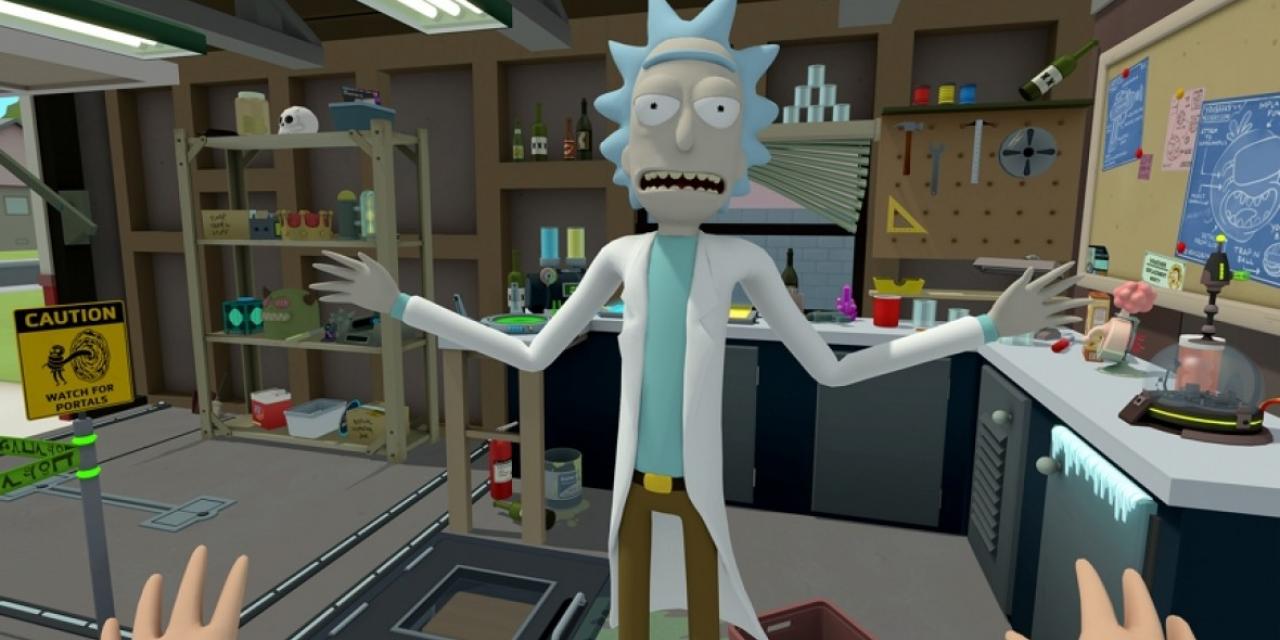
It's probably fair to say that virtual reality hasn't taken off in the manner that many expected it would. Following years of developer kits and gradual upgrades, the launch of the Oculus Rift and HTC Vive in 2016 didn't generate the buzz or general consumer acceptance that many hoped it would and today we're faced with a world where only a few million high-end VR headsets are available and even they don't see the usage that many would have thought when they debuted.
As 2017 comes to a close though and we look forward to what the next 12 months will bring, could it be that 2018 will be the year where virtual reality finally breaks into the mainstream?
What happened?
There are a lot of fingers that can be pointed at a lot of people, companies and places for the reason that virtual reality hasn't caught on quite like some hoped it would with the first-generation of consumer hardware. The most obvious off of the bat was the pricing problem. At $600 with no motion controllers, the Oculus Rift seemed inordinately expensive and at $800 with them, the HTC Vive wasn't much better. It didn't matter that it offered the better experience, that was a lot of money to spend on speculative hardware with a limited software lineup.
That lack of software was certainly a problem, but it has at least become far less of one in the near two-
years since. The hardware however, is still not as impressive as some might have hoped. Although
existing headsets are better than their developer kit cousins, wires are still an issue, motion controllers are
chunky, if functional and the tracking space is as limited as your real-world location.
While that is unlikely to be fixed any time soon – real world limitations will always be there – there are at
least some developments which may begin to help it.
State of things now
As it stands some million plus PC VR headsets are out in the wild and around two million PlayStation VR systems. That's not bad, but it's far from perfect and it's why we still don't really have any AAA titles on any of the platforms. There are experiences of that calibre and games converted to work in virtual reality, but very little that we could describe as top tier from the top developers.
For indie gamers, that's not a problem, but for the mainstream it is. Until the next Call of Duty is as good in VR as it is on a 2D screen or the next Fifa is VR compatible, we're just not going to see the kind of adoption rate needed to make VR a true contender for traditional gaming.
Pricing is far better now though, with the Vive and Rift much cheaper than when they first launched. And it's really encouraging to see that the PSVR has taken off line it has. While two million units is a fraction of the tens of millions who own PlayStation 4s, it's good to see that it's being adopted by such a wide body of gamers. Lower cost ($250-ish) plus the ease of access plays a bit part in that and is part of why we're cautiously optimistic about what 2018 could bring for VR.
Is 2018 the year?
When we ask the question of whether 2018 will kick VR into mainstream, it's important to note that we don't expect the year to close out with 10s of millions of virtual reality users the world over, but there are a few signs which have us intrigued about what the landscape might look like in 12 months' time.
For starters, VR is continuing to snowball. Even if nothing changed throughout the year, we'd be looking at upwards of five million VR users on consoles and PC by the end of the year most likely, which is in itself
encouraging. But that's just the start.
2018 has a lot of exciting VR games that could help. Rick and Morty: Virtual Rick-ality on PSVR will hit in 2018, so will Windlands 2, a big sequel to one of the best existing VR titles. The Half Life 2 VR mod is expected to be completed in the first quarter of 2018, and Marvel Powers United VR won't be far behind. There's Seeking Dawn, Brass Tactics, Apex Construct and Space Junkies, all set to launch in the first few months of next year as well.
The big changes that will help VR though, will be hardware. Alongside new top-tier VR offerings like Pimax's 8K and 5K headsets for those with super-powered PCs, streamlined Oculus Rift and HTC Vive headsets, the Oculus Go and HTC Vive Focus will help introduce people to VR in a much cheaper package, but offer something more impressive than mobile VR.
It's the middle ground that may get more people into VR than ever before and that is what we need to start
to see if VR is going to realize its true potential.
Do you think VR will kick things into high gear in the next 12 months?
